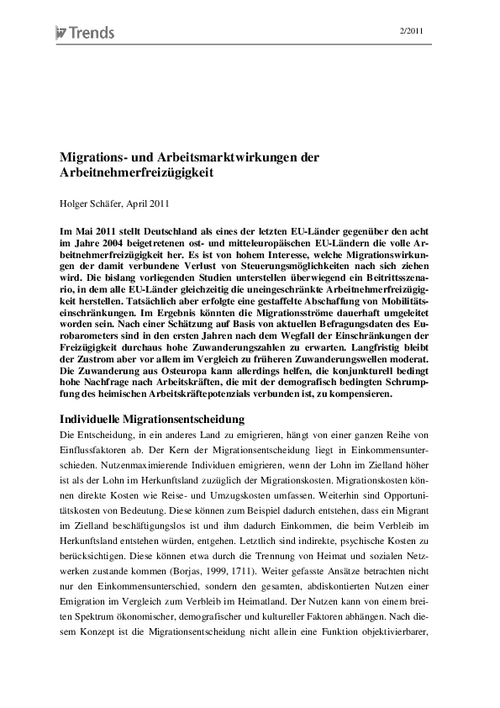In May 2011, Germany is one of the last EU-15-countries that will implement freedom of movement for workers from eight eastern European EU-accession countries. The question is now how this loss of control for migration policy will affect migration flows. Existing studies expect only a moderate increase in net migration to Germany, but they usually assume that all EU-15 countries take the same step at the same time. In fact, Germany and Austria are the last countries to do so while the UK, Sweden and Ireland already lifted all restrictions in 2004. Therefore, migration flows may have been diverted permanently. An estimation based on a recent Eurobarometer survey shows that in the long run, migration from Eastern Europe to Germany will reach a maximum of 1.2 million over a period of ten years. In the first two years after the right of free movement is enforced, the initial annual net migration may reach several hundred thousand. Compared to earlier immigration waves, such as in the 1990s or 1970s, these numbers are rather moderate. In the context of a high cyclical labour demand, immigrants from Eastern Europe can help to alleviate labour shortages caused by the long-term demographic change.
Download | PDF


